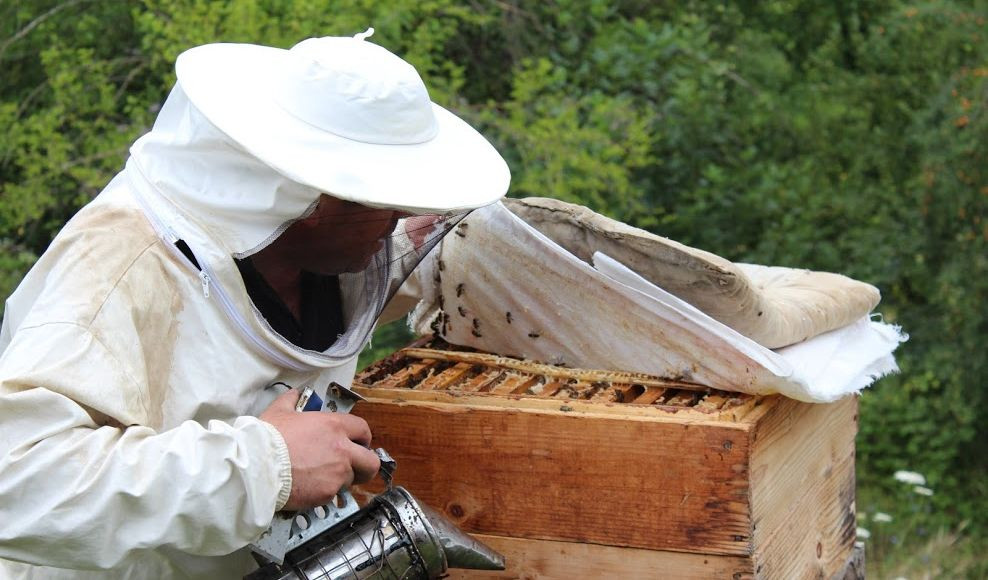Beekeeping in Georgia: Increasing the quality and quantity of Georgia’s bee-products
Published: Sep 26, 2018 Reading time: 3 minutes Share: Share an articleOver the next 2 years, People in Need and the Czech Development Agency will be supporting beekeepers in five regions across Georgia. Working together, our aim is to increase the quality and quantity of bee-products!

Georgia boasts a long tradition of beekeeping thanks to favourable climate conditions, floral diversity and alpine meadows. In fact, Georgia is said to have the longest tradition of beekeeping in the world, dating back 5,500 years! Back in 2012, archaeologists discovered what they believe to be a 5,500 year-old jar of honey, 170km west of the country’s capital.
Despite a decline in the beekeeping practice following the collapse of the Soviet Union, there is great potential for beekeeping in Georgia today. Beekeeping is one of the most profitable agricultural activities in Georgia and is a promising sector for the national economy. This being said, a number of factors prevent the sector from growing and prevent beekeepers from profiting as they should. These factors include: low levels of technical expertise and experience-sharing amongst small-holder beekeepers; the lack of efficiency and productivity of small-scale beekeeping practices; and outdated equipment.
People in Need is tackling these issues over the coming years by giving trainings to small-scale beekeepers on new technologies, business skills, breeding, bee-health and quality control. To enhance the practicality of the training, various modules will be delivered by well-known, professional apiarists at their facilities. Trainees will also take part in learning visits to the apiaries of larger-scale beekeepers and learn from them about their practices in relation to certain bee-products.
Following the trainings, small-holder beekeepers will receive a manual which has been specifically modified for their level of knowledge and expertise. Trainees will also be able to apply for grants so they can purchase new equipment and put their newly learned skills into practice. We will also establish a regional beekeeping education centre in Tbilisi, which will be kitted out with simple laboratories, teaching and training rooms, demonstration hives, and technical equipment. The centre will be a place where local beekeepers can come to seek practical advice and learn more. It will also be open for people who are new to beekeeping, including students and tourists, to discover the practice.
Additionally, the Czech Development Agency will work directly with the Laboratory of the Ministry of Agriculture to introduce seven new methods for monitoring the quality of products. The laboratory will receive new equipment in order to be able to apply these quality measures and conduct better analysis of bee-products. Staff at the laboratory will also be trained on how to use the new equipment.
Our support for beekeeping in Georgia is not simply about strengthening the sector but about improving the quality of life for small and medium-sized farmers for whom beekeeping can become an important source of income.
Keen to know more about beekeeping in Georgia and bees in general?
Follow #beekeepingGEO on social media for #beefacts and updates from our bee-team!



